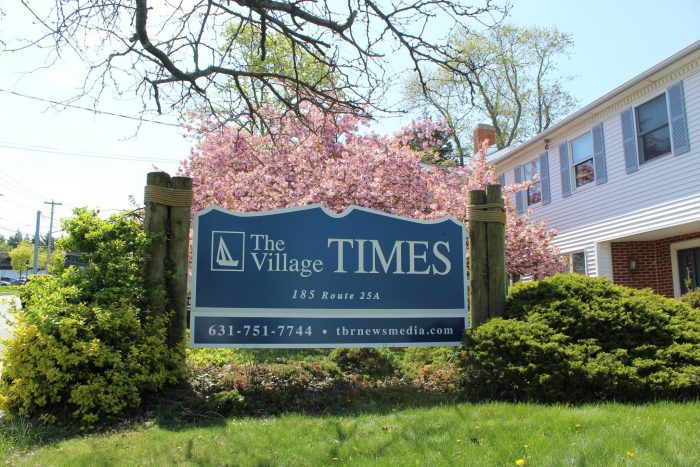Letters to the Editor: March 7, 2024
Letter from a third grader
Hello! I am a third-grade student in northern Virginia. Our class is learning about the United States, and I will be teaching our school about the state of New York. In May, I will create a display for our State Fair that I hope will make you proud.
Although I have gathered facts about your state from books and websites, I think that I can receive the best information from the people who live there. This is why I am writing to you. I am hoping that you would be willing to send me some items to help me learn more about the best things in your state. You might consider sending items such as postcards, pictures, souvenirs, newspaper articles or any other unique items that would be useful to show your state’s pride. Here are a few questions:
Why do you live in your state? What first brought your family there?
How do you make money? What is your job?
What does your state look like?
What do people do for fun?
What animals live there?
What traditional food/recipes does your state have?
What type of music is native to your state?
Do you have a state athletics team?
What geographical features are unique to your state?
I will need to gather all of my information by the second week of May. You can mail items to this address: The Langley School, 1411 Balls Hill Road, McLean, Virginia 22101. I really appreciate your help!
Connor
McLean, Virginia
Local roots to global stages
Thank you for your article — first of two — on the T20 cricket World Cup competition to be played this June in Eisenhower Park [“International cricket coming to Long Island,” TBR News Media].
I am the father of Donald Lockerbie, who is the ICC’s director of competitive facilities for the 2024 events. He tells me that the applications for tickets have risen to more than 6 million. And already, the going price for the India/Pakistan game exceeds $10,000!
Don was born in Mather Hospital in Port Jefferson and attended the local public schools through grade six, then The Stony Brook School — where I was dean of faculty — through grade 12. He was Suffolk County champion in track events, then at the University of North Carolina, Chapel Hill, where he was Atlantic Coast Conference champion at 800 meters. Two years after graduating from UNC, he was appointed head coach of cross country track and field, at that time the youngest head coach in NCAA Division 1.
One day, the UNC athletic director informed him that the North Carolina Legislature had just approved $1 million dollars for a new track/field facility. “Spend it wisely,” the A.D. said. So Don set about learning about artificial turf and all-weather tracks. At the first meet held on the 400-meter track built under his supervision, Renaldo Nehemiah set a world record in the 110-meter hurdles. Thereafter, Don became an “expert” witness in various lawsuits over faulty tracks, from which avocation he moved fulltime into sports facilities development.
He has been responsible for competitive facilities at every Olympic Games since 1988. For the 1994 FIFA World Cup, he was responsible for the nine USA sites, including growing grass on top of the artificial field at Giants Stadium. For the 2007 cricket World Cup in the West Indies, he was responsible for all the sites, following which he accepted the position as CEO of USA Cricket. He now leads the sports event and facility branch of The Parker Company, responsible for such stadiums as the Las Vegas site of the Super Bowl. In addition to these major events, he has supervised the construction of hundreds of municipal/school/college sports facilities throughout the world.
Don worked one summer as sports editor for The Village Times Herald.
D. Bruce Lockerbie
East Setauket
Call to action for a cleaner community
As I drive and walk around the Three Village area, I am disheartened to see excessive amounts of trash strewn along our streets, highways and wooded areas. There is trash along all of our roads and highways, including along Old Post Road, Nesconset Highway, East Setauket’s Main Street, and most notably along the forested stretch of Belle Mead Road, which, as it is a wooded recreational area, is especially egregious and disheartening.
Litter is an eyesore, but it’s also dangerous. Loose trash can cause accidents when large objects fly into traffic, it clogs water drainage areas and sewers, it pollutes our waters and it hurts wildlife. I’ve registered complaints with local and state officials, to no avail. Cleaning crews must be dispatched along all roads on a regular basis.
We also need stronger, enforced laws against littering and dumping, as well as countywide anti-litter campaigns to discourage this abusive behavior and set an example for our children. More frequent organized, volunteer cleanups are needed as well. This is a solvable mess, but it will take more public awareness and leadership from officials. If trash is not cleaned up, people will continue to think it’s OK and ignore it, and won’t change their behavioral patterns. It’s a quality of life issue as well as an environmental issue.
I know I’m not the only one who is perturbed by this issue, so please contact your local officials and let’s clean up our beautiful island!
Adriana Lubarsky
East Setauke
Response to concern for electric school buses
Assemblyman Ed Flood (R-Port Jefferson) stated what he thought were the downsides of Gov. Kathy Hochul’s [D] proposed all-electric school bus mandate. Unlike Flood’s ideas, the Hochul proposal is based on facts, not hearsay or fiction. As such, here is my counterargument to Flood’s points:
Cost: While transitioning to electric buses does involve initial investment, studies suggest that the long-term operational and maintenance costs of electric buses are lower than those of traditional diesel buses. Additionally, with advancements in technology and potential government subsidies, the cost barrier is gradually decreasing.
Tax increase: While there might be initial costs associated with implementing electric buses, the long-term benefits, such as reduced health care costs due to decreased air pollution and job creation in the clean energy sector, can offset these expenses. Moreover, targeted funding sources, such as federal grants or revenue from carbon pricing mechanisms, can be explored to mitigate the impact on taxpayers.
Reliability: Modern electric buses are becoming increasingly reliable as technology advances. Manufacturers are continuously improving battery technology and bus design to enhance performance and durability. Moreover, many cities worldwide have successfully integrated electric buses into their fleets, demonstrating their reliability in real-world scenarios.
Battery safety: While any energy storage system carries inherent risks, stringent safety standards and protocols are in place to mitigate these risks. Advances in battery technology, such as thermal management systems and robust battery enclosures, have significantly reduced the likelihood of battery-related incidents. Additionally, proper training for maintenance personnel and emergency responders further enhances safety.
Temperature fluctuations: Extreme temperatures can indeed affect battery performance, but modern electric buses are equipped with sophisticated thermal management systems to regulate battery temperature and optimize performance in varied climates. Moreover, ongoing research and development aim to improve battery resilience to temperature extremes, ensuring reliable operation in diverse environments.
To summarize: While transitioning to electric buses involves challenges, dismissing them outright based on outdated or exaggerated concerns undermines the potential benefits of sustainable transportation. Decision-makers should prioritize evidence-based policymaking and consider the long-term environmental, economic and public health advantages of electrifying the transportation sector. Additionally, engaging stakeholders — including industry experts and community members — can facilitate informed decision-making and address legitimate concerns through collaboration and innovation.
Harvey Miller
East Meadow







